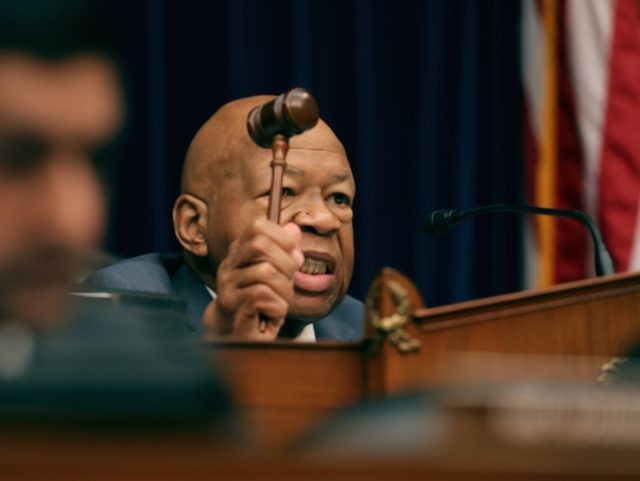Michael Cohen’s testimony before the House Oversight Committee hearing on Wednesday yielded very little in terms of new information about alleged misconduct by President Donald Trump or his 2016 presidential campaign.
If anything, Cohen’s testimony hurt the case against the president. Cohen said that he had no direct evidence of collusion between the Trump campaign and the Russian government. He also appeared to lie several times (again).
The media, too, lost. They billed Cohen’s appearance as a climactic moment — then struggled to salvage bits and pieces of their shattered narratives from the wreckage of his testimony. Cohen told the committee that Trump had not actually told him directly to lie to Congress. He also admitted there was no evidence, other than the word of a convicted liar (himself), that Trump had ever directed that “hush money” be paid to Stormy Daniels and others.
There were plenty of entertaining moments. There was nothing so absurd as watching Rep. Debbie Wasserman Schultz (D-FL), who was forced to resign as Democratic National Committee chair after rigging the 2016 primary so that only Hillary Clinton could win, asking Cohen whether Trump had worked with Russia to rig the general election. And there was nothing so outrageous as watching first-year Rep. Rashida Tlaib (D-MN) call Lynne Hutton, a black woman with senior roles in both the Trump campaign and the Trump administration, a “prop.”
Overall, however, the hearing yielded nothing but Cohen’s own speculations, fueled by Hillary Clinton’s own — admittedly, more capable — “fixer,” Lanny Davis. Cohen testified that prosecutors from the Southern District of New York were looking into potential crimes by Trump. That much has been known since Cohen’s own indictment.
Yet there was something significant that happened on Wednesday. At some point in the hearing, the questions moved beyond Stormy Daniels and Russian collusion and moved to Trump’s business dealings, and even his personal life.
Had he abused “controlled substances”? Had he paid for women to have abortions? Had he struck the First Lady? What about the value of his real estate — did he overvalue it for insurance, and undervalue it for taxes?
These questions had nothing to do with “oversight” of government. The equivalent would have been Republicans using — or abusing — the investigative powers of the committee to call convicted Chicago fraudster Tony Rezko to testify about his dealings with Barack Obama, and Obama’s character.
The GOP took a lot of criticism for lengthy hearings on the Benghazi terror attack, but at least that had to do with government. We are far beyond that now.
And now it becomes crystal clear why Rep. Elijah Cummings (D-MD), the chair of the committee, renamed it last month. What was once the “Committee on Oversight and Government Reform (OGR)” is now the “Committee on Oversight and Reform (COR)” — i.e. no “government.” Cummings said the new name reflected the committee’s “true jurisdiction, which covers both government and the private sector.” By “private sector,” he meant “Trump.”
What the country saw in the Michael Cohen hearings was a committee no longer concerned with clean and effective government, but one that has become a giant Democratic opposition research operation.
At the end of the hearing, Cummings suggested that future witnesses would include employees of the Trump business empire, as well as members of the Trump family.
The abuse of power has now been institutionalized. And innocence is no obstacle.
Joel B. Pollak is Senior Editor-at-Large at Breitbart News. He is a winner of the 2018 Robert Novak Journalism Alumni Fellowship. He is also the co-author of How Trump Won: The Inside Story of a Revolution, which is available from Regnery. Follow him on Twitter at @joelpollak.

COMMENTS
Please let us know if you're having issues with commenting.